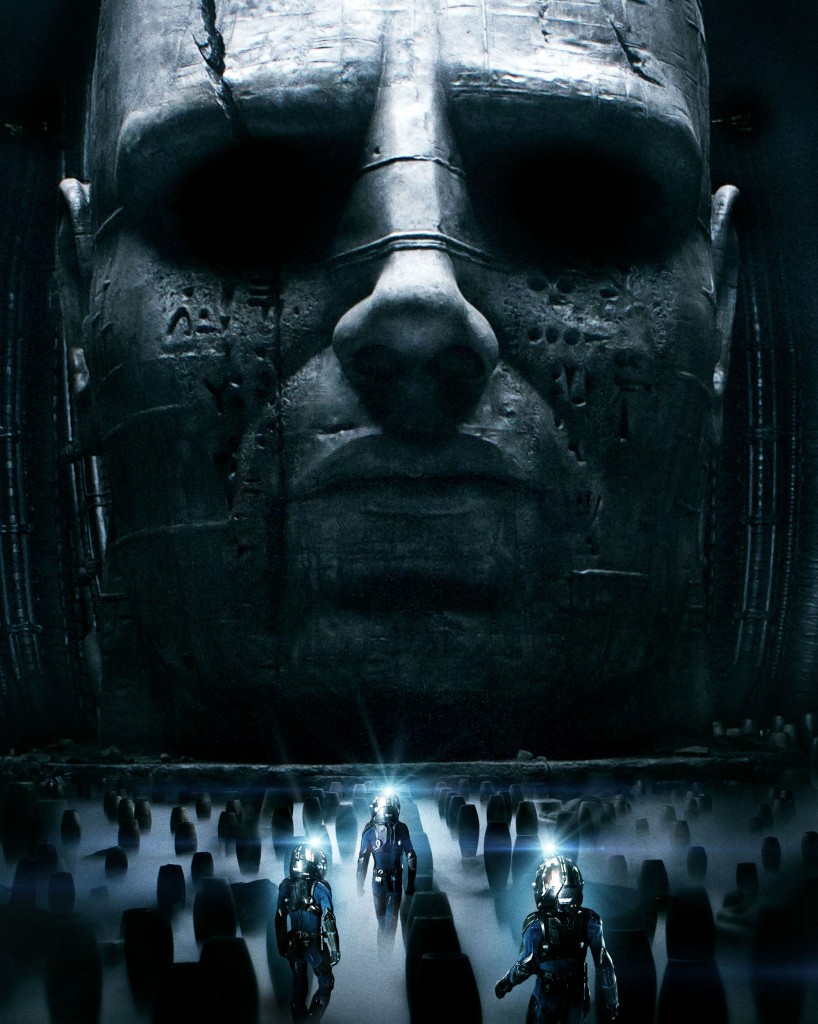If Prometheus is anything to go by, the cinematic age of production is well and truly over. This apparently endless film barely retains your attention, the means by which that mode of production created value. Instead, poorly-thought through and contradictory “ideas” lead lazily to a conclusion that simply sets up the inevitable sequel. In that sense, I suppose, the film represents the circulation of its own capital but if this is capital’s vision of its own future, it’s in bad trouble.
The Alien movies directed by Ridley Scott defined the fear of alterity for a generation. Their vision of the future as a damp, dismal and dangerous place visualized the neo-liberal collapse of the Jetsons’ future promised in the 1950s and 60s. Far from flying with individual skypacks, this future offered low-paying jobs hauling crap from the far edges of the universe on ships ironically named Nostromo, after Joseph Conrad’s novel. And much worse besides.
Prometheus takes some mediocre theology from 1970s pop theory like Eric von Daniken and blends it with the familiar Alien tropes from the evil Company to the seething eggs, stickly effluent and dark corridors with forbidding spiky things. I would call what comes next a spoiler normally but in this case I doubt it. Anyway, there’s an evocative opening in which a figure derived from Blake’s drawing of Newton breaks himself down to his DNA in order to animate a planet that we take to be Earth. This leads into some archaelogical movie stuff–see, all the ancient art forms depict the same alignment of planets!–and we’re off to The Planet.
Two twists to mention: the Prometheans, for reasons yet to be revealed, first decided to send proto-Aliens to earth to kill all the humans and then decided not to. And the Alien is a hybrid of Prometheus and their own nascent Alien weapon. So, because human DNA is, as we’ve seen, Promethean, that means the Alien is half-human. Ta da!
I can’t really be bothered to get into a critique of all this because the narrative, the ideas and the visualizations are so lame. The scientists want to know “where we come from, where we are going.”
The colonial dimensions of this quest are reinforced by the fact that Elizabeth Shaw (Noomi Rapace) is the daughter of missionaries–her mother inevitably died young–and is a convinced Christian. Like a good Republican, Shaw wants to know “why they hate us,” a formula in which Prometheans stand in for Muslims. It’s too late, no-one really cares any more about this Bush-era formula. The sad retreat from Afghanistan that will be called a “victory” already seems to belong to a bygone era.
Cinema had its day as the visualization of capital and there was a certain exhilaration to it. Brecht once said he found himself supporting the cowboys in a Western despite himself. Now that’s all gone. At the end of the Roman Empire, they somehow forgot how to make classical sculpture and their art became odd, rounded figures seemingly made from clay. The empire has forgotten how to make films.



Pingback: Ridley Scott movie 'Prometheus' rests on some real astronomy